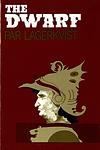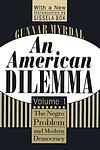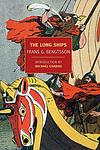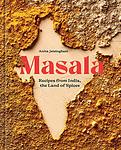The Greatest Irish, Swedish Books From 1940 to 1949
Click to learn how this list is calculated.
This list represents a comprehensive and trusted collection of the greatest books. Developed through a specialized algorithm, it brings together 290 'best of' book lists to form a definitive guide to the world's most acclaimed books. For those interested in how these books are chosen, additional details can be found on the rankings page.
Genres
Countries
Date Range
Reading Statistics
Click the button below to see how many of these books you've read!
Download
If you're interested in downloading this list as a CSV file for use in a spreadsheet application, you can easily do so by clicking the button below. Please note that to ensure a manageable file size and faster download, the CSV will include details for only the first 500 books.
Download-
1. Pippi Longstocking by Astrid Lindgren
The book tells the story of Pippi Longstocking, a young girl with superhuman strength who lives alone in a colorful house in a small Swedish village. With her pet monkey and horse, Pippi embarks on a series of humorous and often absurd adventures, defying societal norms and adult authority with her unconventional wisdom and moral code. Despite her wild antics, Pippi's kindness, generosity, and courage make her a beloved figure in her community.
-
2. The Dwarf by Par Lagerkvist
"The Dwarf" is a dark, philosophical novel set in the Italian Renaissance, narrated by a malevolent court dwarf who serves a prince. The dwarf is a symbol for the darker side of humanity, embodying all the malice, deceit, and manipulation that one can possess. His actions and viewpoint provide a cynical commentary on human nature and the moral complexities of power, war, and love. The novel explores themes of good and evil, faith and doubt, and the destructive side of human nature.
-
3. An American Dilemma by Gunnar Myrdal
This book is a comprehensive sociological study on the issues faced by African Americans in the United States during the mid-twentieth century. The author examines the deep-rooted racial discrimination and inequality prevalent in American society, exploring its origins, implications, and potential solutions. The work is notable for its detailed analysis and its impact on subsequent civil rights movements.
-
4. The Long Ships by Frans G. Bengtsson
"The Long Ships" is a historical fiction novel centering around the Viking era. The story follows the adventures of a young Viking named Red Orm who is kidnapped by other Vikings, becomes a slave, then a chieftain's henchman, a merchant, explorer, and a soldier. His adventures take him from his native Sweden to Spain, England, Denmark, and Ireland. The novel explores the political, religious, and cultural landscapes of the era, providing a detailed and engaging portrayal of the Viking world.
-
5. The Emigrants by Vilhelm Moberg
"The Emigrants" is a historical novel that follows the journey of a Swedish farming family who, driven by poverty and religious persecution, decide to emigrate to America in the mid-19th century. The narrative explores their struggles and hardships, from the decision to leave their homeland, the arduous journey across the Atlantic, to their eventual settlement in Minnesota. The book provides a profound and realistic depiction of the immigrant experience, highlighting the courage, determination, and resilience of the emigrants.
-
6. The Road to Klockrike by Harry Martinson
This novel tells the story of a wandering day laborer in Sweden during the early 20th century. The protagonist, who is mentally challenged, travels from farm to farm, performing odd jobs and struggling to survive. The narrative explores the harsh realities of life for the poor and disadvantaged, as well as the protagonist's interactions with various characters he meets along the way. Despite the hardships, the main character manages to maintain a sense of optimism and joy in life.
-
7. Kallocain by Karin Boye
This dystopian novel presents a totalitarian world where the government exercises complete control over its citizens' lives, even their thoughts. The protagonist, a loyal soldier, invents a truth serum named Kallocain, which the government uses to extract citizens' innermost secrets. As the story unfolds, the protagonist begins to question the morality of his invention and the regime he serves, leading to a deep personal crisis. The book explores themes of individual freedom, privacy, and the dehumanizing effects of totalitarianism.
-
8. Collected Poems by Nils Ferlin
"Collected Poems" is a compilation of the works of a renowned Swedish poet, capturing the essence of his unique style and lyrical prowess. The poems explore various themes such as love, life, death, and the human condition, often with a touch of melancholy and a keen sense of observation. The poet's ability to weave intricate emotions and vivid imagery into his verses makes this collection a testament to his literary genius.
-
9. The Man Without a Way by Erik Lindegren
"The Man Without a Way" is a thought-provoking exploration of a man's existential crisis as he navigates his way through life without a clear path or purpose. The protagonist grapples with feelings of alienation, disillusionment, and a deep-seated sense of despair, reflecting the author's own experiences and struggles. The narrative delves into the human psyche, examining themes of identity, self-doubt, and the quest for meaning in an increasingly complex and chaotic world.
-
10. The Road by Harry Martinson
"The Road" is a reflective and poignant narrative that delves into the life of a young man who leaves his rural home to explore the urban landscape, seeking new experiences and understanding of the world. The protagonist's journey is both literal and metaphorical, as he navigates through various cities and encounters diverse people, each adding depth to his understanding of society and himself. The novel intricately portrays themes of isolation, the search for meaning, and the impact of industrialization on human connections and the environment, capturing the existential dilemmas of modern life.
-
11. A Burnt Child by Stig Dagerman
The novel delves into the psychological turmoil of a young man grappling with the complexities of adulthood and the haunting specter of his father's death. As he navigates the murky waters of guilt, desire, and rebellion, he becomes entangled in a web of relationships that challenge his understanding of love, morality, and his own identity. Set against the backdrop of post-war Sweden, the story is a poignant exploration of grief, the struggle for self-discovery, and the painful journey towards coming-of-age in a world that seems both indifferent and unforgiving.
-
12. The Burnt Child by Stig Dagerman
"The Burnt Child" is a psychological novel that delves into the complexities of grief and guilt. The narrative follows a young man who is grappling with the traumatic loss of his father, who died in a mysterious fire. As he returns to his family home, he is consumed by the need to uncover the truth behind the tragedy, while also confronting his own inner demons and the strained relationships with those around him. The novel explores the depths of human emotion and the dark corners of the mind, as the protagonist's quest for answers leads him down a path of self-discovery and redemption.
-
13. The Land Of Spices by Kate O'Brien
"The Land of Spices" by Kate O'Brien is a captivating novel set in a Catholic convent school in Ireland during the early 20th century. The story follows the life of Mother Marie-Helene, a French nun who becomes the headmistress of the school. As she navigates the challenges of her position, she also grapples with her own desires and the conflicts between her faith and her personal longings. Through vivid descriptions and complex characters, the novel explores themes of love, duty, and the struggle to reconcile one's desires with societal expectations.
-
14. Tales From Bective Bridge by Mary Lavin
"Tales From Bective Bridge" is a collection of short stories that explores the lives of ordinary people in rural Ireland. Set in the mid-20th century, the stories delve into themes of love, loss, and the complexities of human relationships. Lavin's vivid storytelling and keen observation of human nature bring these characters to life, capturing the beauty and struggles of everyday life in a small Irish community.
Reading Statistics
Click the button below to see how many of these books you've read!
Download
If you're interested in downloading this list as a CSV file for use in a spreadsheet application, you can easily do so by clicking the button below. Please note that to ensure a manageable file size and faster download, the CSV will include details for only the first 500 books.
Download









